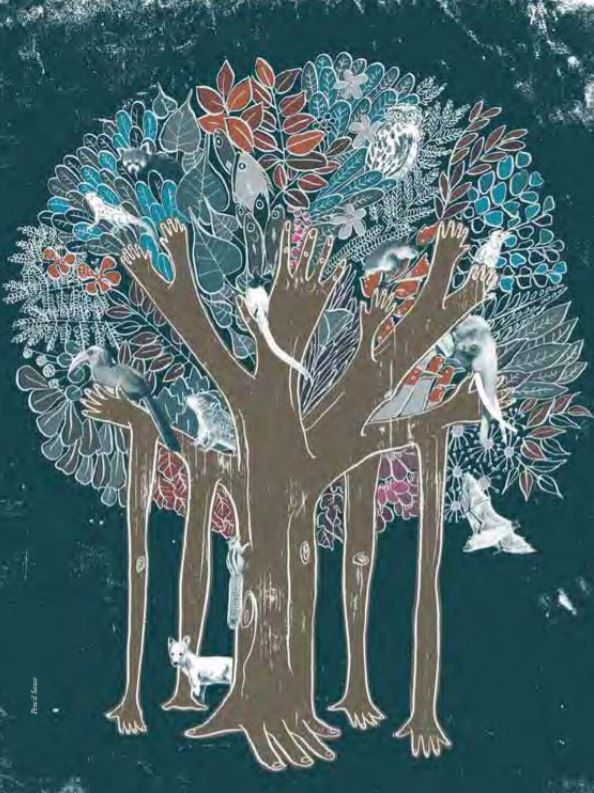Elinor Ostrom’s research shows that empowering local forest users to manage their own forests may lead to better forest conservation under certain circumstances. This finding lends credence to movements in South Asia, which has had a long history of local governance of natural resources, and across the developing world, where people are trying to govern the resources they have used for centuries. It has also convinced many policy-makers and academics that local governments can contribute to sustainability. Ostrom’s work convincingly shows that sustainable governance, though difficult, is possible. Implementing a broadscale system for sustainable governance requires building on historical roots. !is helps to develop diverse institutions, that link-local ecological knowledge and livelihood needs with higher-level sources of technical expertise, political power, and funding.
The South Asia Connection
Since the publication of her classic work, Governing the Commons, in 1990, Ostrom and her colleagues have developed an impressive research program on forest governance in South Asia. The International Forestry Resources and Institutions (IFRI) program was begun by Ostrom and her colleagues, at the Workshop in Political Theory and Policy Analysis at Indiana University, at the urging of FAO colleagues, who wished to replicate the successes of the Nepal Irrigation Institutions and Systems (NIIS) database, which showed that farmer-run irrigations systems consistently out-performed public systems, because farmers could make rules that fit local requirements. The IFRI program aimed to combine the benefits of case studies with the building of a large database, that could be used to test broader hypotheses about forest governance. From the start, the IFRI program included sites in India and Nepal, and two of the 11 current IFRI collaborating research centers are located in South Asia. Ostrom has co-authored a number of publications, that draw on this work to address challenges of forest governance in Nepal and India, which show that government requires effective institutions to overcome many collective action problems, and that, “when users are genuinely engaged in decisions regarding rules affecting their use, the likelihood of them following the rules and monitoring others is much greater than when an authority simply imposes rules. These studies show that her conclusions from Governing the Commons are relevant for South Asia.
Before the publication of Governing the Commons, several authors had already demonstrated the impressive capacities of local users to manage the commons in South Asia. Robert Wade’s studies of the centuries-old south Indian irrigation systems demonstrated, that such traditional systems could be quite successful even in the modern era, while Narpat Jodha’s surveys of livelihood patterns in several arid regions of India, documented the great importance of the commons for the poor.






